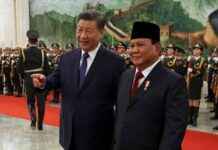China has expressed its strong opposition to the recent US arms sale to Taiwan, calling it a serious infringement on its sovereignty. The sale, which includes spare parts and support for F-16 jets and radars, was approved by the US State Department for an estimated $385 million. In response, China has promised “resolute countermeasures” and lodged a complaint over the sale.
The timing of the arms sale coincided with Taiwan President Lai Ching-te’s visit to Taipei’s diplomatic allies in the Pacific, with stops in Hawaii and Guam. China has firmly opposed President Lai’s transit in the US and views the arms sale as a signal to Taiwan independence forces, which it strongly opposes.
Despite the lack of formal diplomatic ties between the US and Taiwan, the US is obligated by law to provide Taiwan with the necessary means to defend itself. This commitment has been a point of contention with China, which considers Taiwan to be a part of its territory. China’s opposition to President Lai and its strong stance on Taiwan sovereignty highlight the complex and sensitive nature of US-China-Taiwan relations.
The US arms sale to Taiwan is just one of many issues that have strained relations between the US and China. Tensions between the two superpowers have escalated in recent years over trade, technology, and human rights, among other issues. The situation in the Taiwan Strait remains a potential flashpoint for conflict, with both China and Taiwan holding firm to their respective positions on sovereignty.
As the US continues to navigate its relationship with Taiwan and China, it must carefully balance its commitment to Taiwan’s security with its broader strategic interests in the region. The recent arms sale is likely to further exacerbate tensions between the US and China, underscoring the need for diplomatic efforts to defuse potential conflicts and maintain stability in the Asia-Pacific region.




















